Renewable Energy
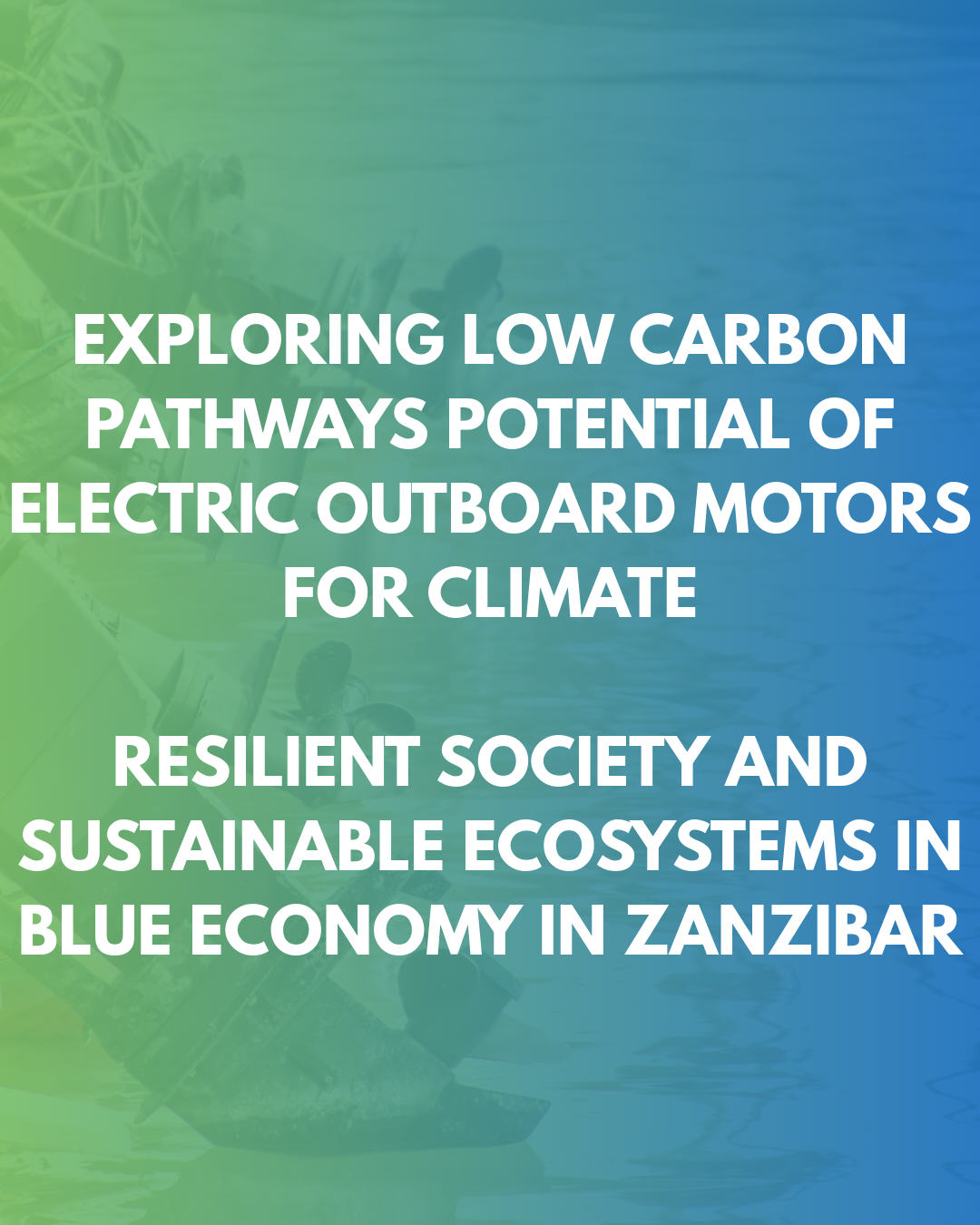
Exploring Low Carbon Pathways Potential of Electric Outboard Motors for Climate Resilient Society and Sustainable Ecosystems in Blue Economy in Zanzibar
The rapid growth of the Blue Economy in Zanzibar offers both opportunities and challenges for sustainable development. Coastal communities rely heavily on marine resources for fishing, transportation, and tourism; yet, these activities are increasingly threatened by climate change, environmental degradation, and rising fuel costs. Traditional fossil-fuel-powered outboard motors, widely used by fishers and boat operators, contribute to greenhouse gas emissions, marine pollution, and high operational expenses. There is an urgent need to explore innovative, low-carbon solutions that safeguard marine ecosystems while strengthening community resilience. The electric outboard motors lack data on their environmental impact and its socio-economic benefits, particularly in the context of marine transport and tourism operations.
The Green Energy – Blue Economy (GeBe) Research Project responds to this need by exploring the potential of electric outboard motors as a sustainable alternative for Zanzibar’s coastal and marine sectors. By investigating the technical, economic, and ecological viability of electric motors, the project aims to identify low-carbon pathways that reduce emissions, protect fragile ecosystems such as coral reefs, and support climate-resilient livelihoods. This initiative is positioned at the intersection of green energy innovation and sustainable ocean management, reflecting Zanzibar’s commitment to building a resilient, inclusive, and future-ready Blue Economy.
Through research, stakeholder engagement, and pilot testing, the GeBe project seeks to generate evidence that informs policy, investment, and community action. The project will assess environmental benefits, cost-effectiveness, and social impacts of adopting electric motors while fostering partnerships among government, academia, the private sector, and local communities. Ultimately, the initiative aims to demonstrate that green energy solutions are not only viable but also essential for achieving sustainable development goals, enhancing climate resilience, and ensuring that Zanzibar’s Blue Economy thrives in harmony with people and nature.
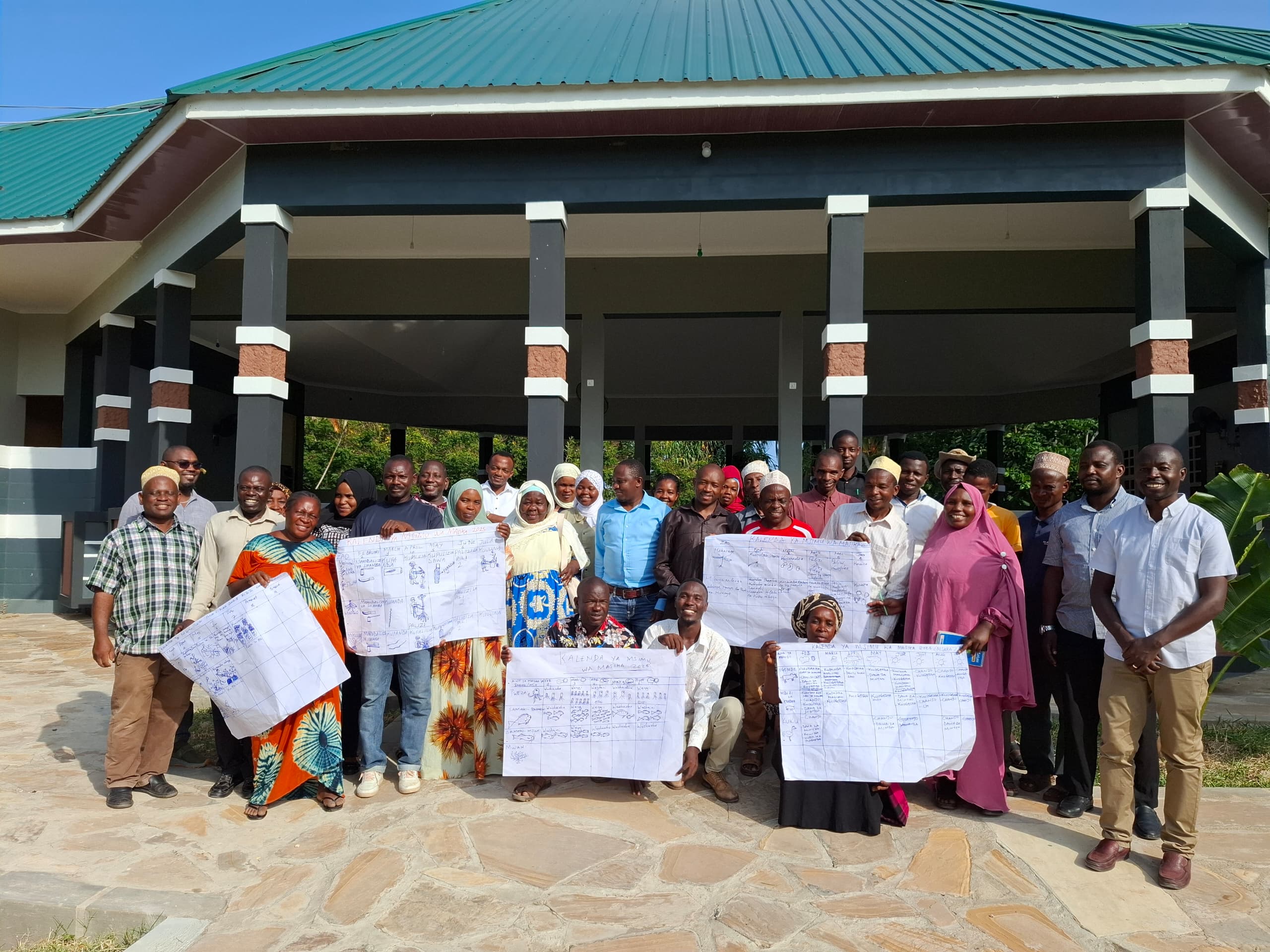
Aligning Climate Resilience, Sustainable Development, and Poverty Reduction (Phase III)
Tanzania has high-quality and enough renewable energy sources to meet most of the country's energy demands. Still, most of these sources have remained unutilized. The Aligning II project supported the co-development of important national frameworks, including the ongoing National Renewable Energy Strategy and the road map to expand renewable energy utilization in Tanzania.
However, limited decentralization of the national energy-related framework is a significant obstacle to achieving the full potential impact of the national strategy on renewable energy, economic development, and social welfare at the local level. This limitation is due to several factors, including limited local resources, inadequate awareness to support renewable energy technology, conflicting frameworks, centralization in the nature of policies, limited stakeholder participation, and weak coordination between different stakeholders.
Aligning III is a 3 years project funded by Bread for the World which aims to integrate Renewable Energy and Climate services to inform strategic sectors such as Agriculture, Livestock, Water and Fisheries in Tanzania by 2026. This project will be conducted in 4 Districts namely; Bagamoyo, Chalinze, Lushoto and Pangani.
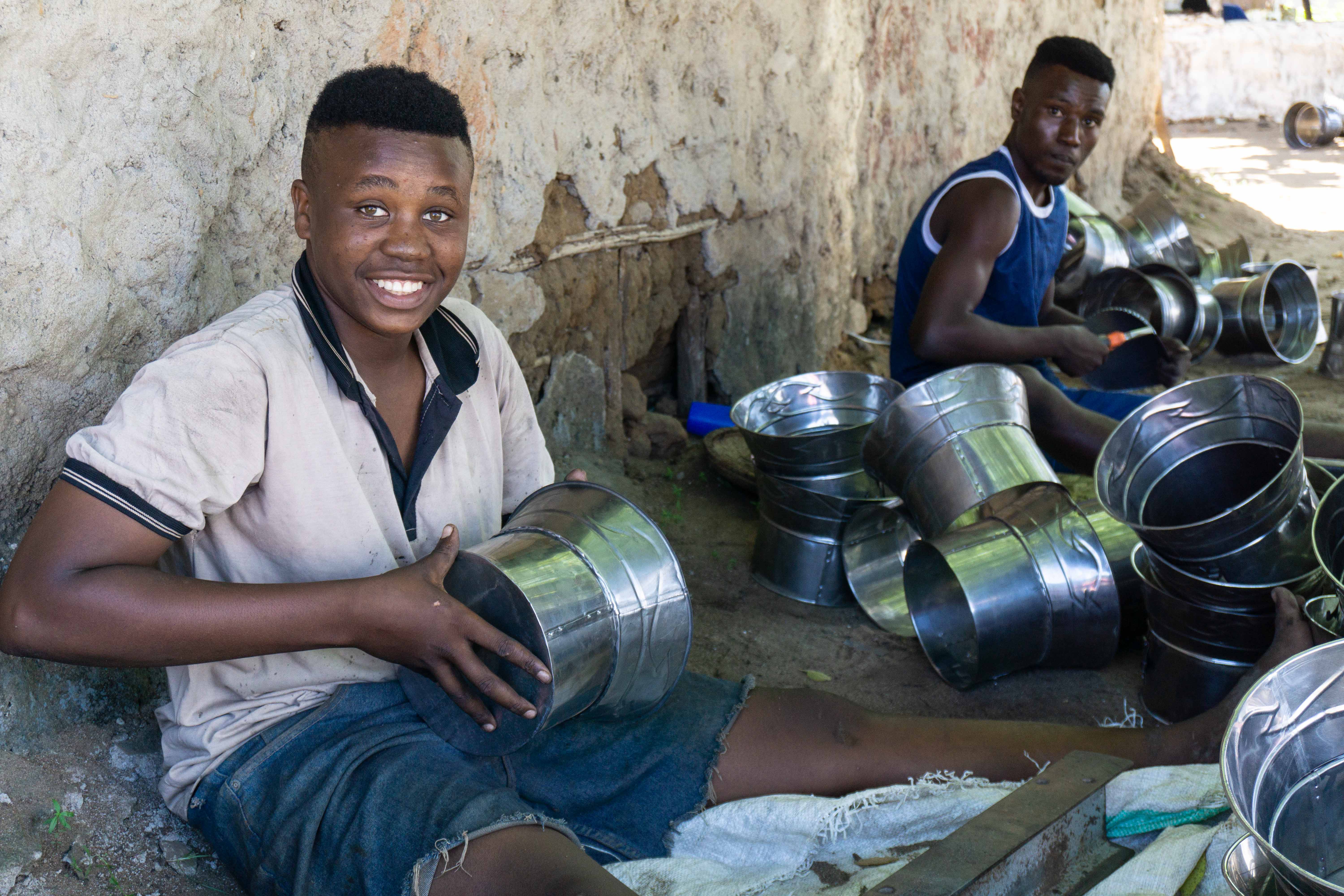
Clean and Affordable Energy: Contextualising the bottom-up approach on influencing the transition to clean and affordable energy systems in Tanzania
The existing policies poorly protect climate vulnerable groups and unreliable climate services increase the exposure of their livelihood activities to current and future shocks. Vulnerable communities are highly exposed to climate change and experience loss and damage due to low adaptive capacities and poor livelihood diversification approaches.
Through lobbying and advocacy work we enhanced the awareness especially on the local level to ensure the green energy transition. The entire project was based on a baseline study, which will provided a benchmark for technical backstopping for local CSOs and revealed existing potential for transitioning to clean and affordable energy in Tanzania. This was aligned with various capacity building activities on topics like clean energy technologies and clean cooking. The effective use of clean energy for LGAs, village leaders, community development groups, CSOs and highly marginalized groups such as woman and youth was promoted as well.
During strategic meetings and trainings a lobbying strategy was developed. Furthermore, we organized a clean energy essay and drawing competition as well as discussions in secondary schools to enhance the public dialogue on transitioning to clean and affordable energy.
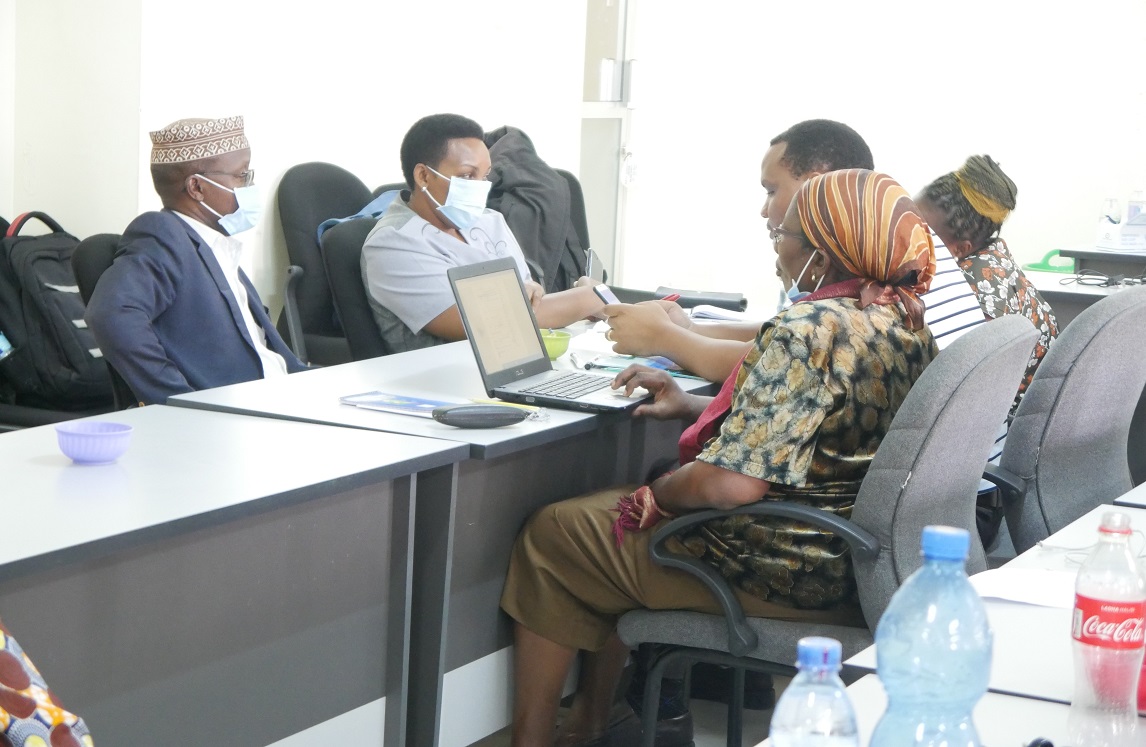
Participatory NDCs for a climate-just response in a COVID-19 world
The submission of revised national climate plans (NDCs) under the Paris Agreement is an important milestone in 2020 in order to further close the large gap between the climate targets and the previous requirements of the governments. Due to COVID-19 situation, conditions for an active CSO engagement are very difficult due to the unlimited attention to COVID-19 and the partial Little attention to climate policy, government restrictions on travels and gatherings, etc.. Awareness of cumulative effects and various solutions for both climate change and COVID-19 among decision-makers in project countries is very low due to the strong COVID emergency approach. Tanzania like many project countries treat climate measures during the COVID19 recovery phase as secondary and see these two as completely decoupled. The project addresses this situation with a focus on the voice and the contributions of civil society organizations in the project countries, especially in Bangladesh, Tanzania and Uganda, for participatory and gender-equitable improved NDCs in the context of the COVID-19 recovery are taken into account when creating the NDC.
Tanzania submitted its first Intended Nationally Determined Contribution to the UNFCCC by 2015. Since 2015, the URT has been revising and updating the NDC and implementation plan to ensure they are ambitious and realistic commitments. The process has been slow that expected due to limited available resources and the arising challenges like COVID-19 which have been changing the wave of focus of the government. Currently the review process of the Tanzania NDC is complete, and the NDC has been submitted to the ministerial cabinet for approval to be submitted to the UNFCCC and effective commencement of the implementation.
Through this project, the second review of the draft NDC was conducted to address the key issues of gender, WASH and blue economy which were missing. This also provided an opportunity for enhancement of CSOs in the technical session of revising the NDC and implementation plan that ensured practical ambitions on both adaptation and mitigation, expected to strengthen monitoring, reporting, engagement, ownership and build country resilience to the impacts of climate change and equally contribute to the global effort of reducing GHGs emission.
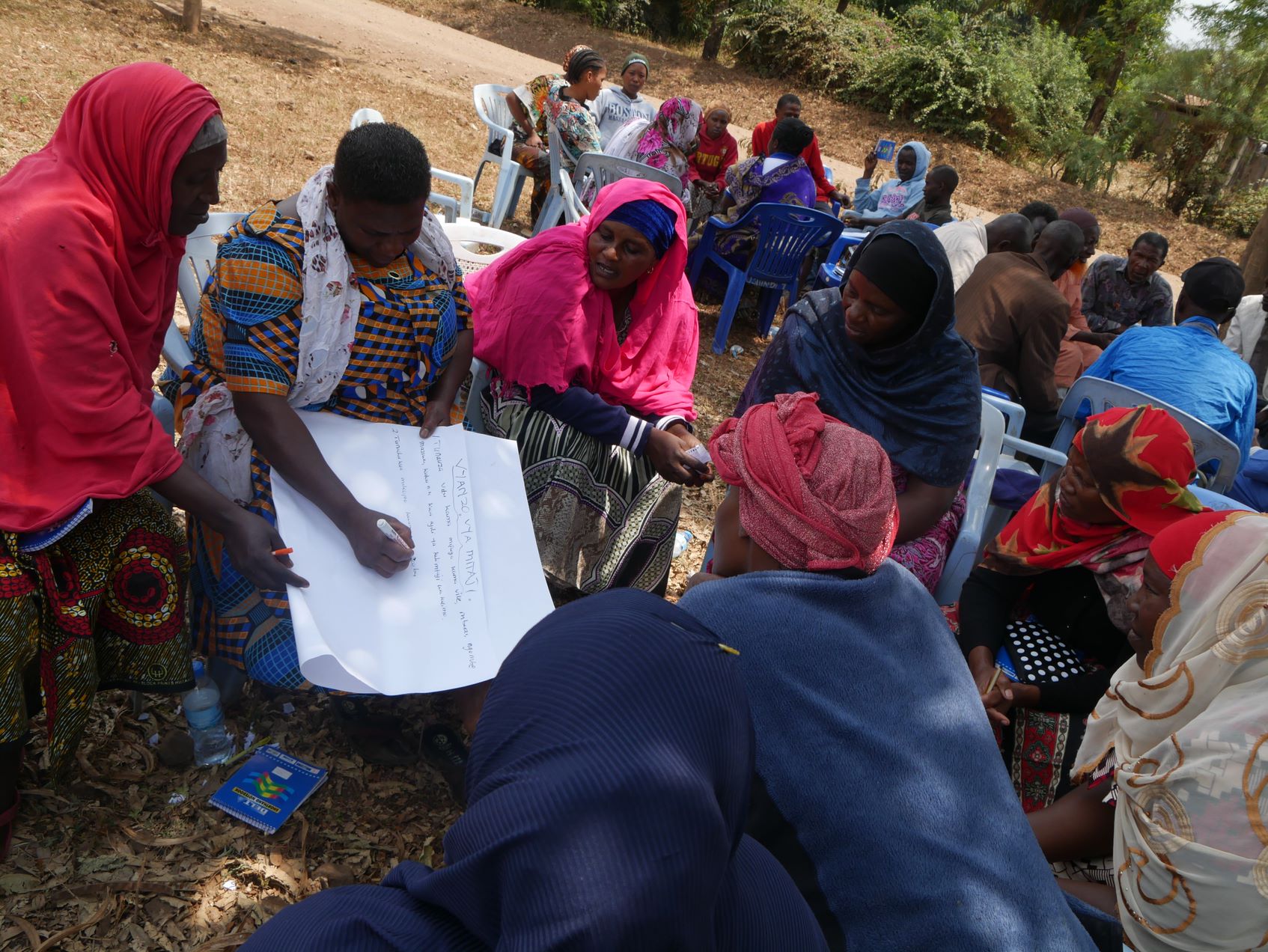
Enhancing the role of Solar Irrigation for Poverty Reduction Near Mt. Kilimanjaro
The project for enhancing the role of solar irrigation for poverty reduction is aiming at enhancing the adoption of solar-powered irrigation technology by the smallholder farmers in the three target project areas, leading to improved and diversified food production, enhanced climate resilience and overall social well-being, enhanced environmental conservation and climate change resilience.
Due to climate change water stresses in most tanzania communities increased. Research show that the effect of severe droughts in Hai District impact agriculture production and food security significantly.Traditionally for irrigation water from river diversions or natural springs were used. This secured the food security and income to the majority of farmers in Hai District. However, the situation has changed in recent year so farmers are no longer able to rely on traditional irrigation techniques. Due to the change of rainfall patterns streams and rivers does not flow anymore predictable continuously throughout the year.This project addresses theirfore the need for a sustainable all-year-round irrigation. The project is implemented in the three villages of Ngosero, Kilima Mbogo and Mkombozi which are located in the dry lowland plains of the southern part of Mt. Kilimanjaro.
Hydrogeological studies, conducted in the initial phase of the project showed that enough groundwater is accessible by drilling boreholes to set-up solar-power irrigation schemes.
To ensure the sustainability of the project farmers are trained in climate smart farming and agribusiness.By this approach farmes build the capacity to utilize the solar irrigation to change their farming from rain-fed to all-year-round and using the surplus of the harvest to finance maintenance cost and reduce poverty. Based on these interventions with an holistic human-centered and participatory approach, it is expected that smallholders in will get resilient and capable of coping with present and projected shocks from climate change.
Funded by the Germany Government through
the Ministry for Economic Cooperation and Development (BMZ), this 2-year
project aims at enabling the poor, marginalized and vulnerable smallholder
farmers in three villages (Ngosero, Kilima Mbogo, and Mkombozi) located in the
dry lowland plains of the southern part of Mt. Kilimanjaro to overcome the
pervasive challenges of poverty, food insecurity. It also seeks to address gender
inequality and water use conflicts caused by lack of access to reliable and
affordable water supply for irrigation purposes as compounded by the growing
impacts of climate change.
In this regard, 2021 was the first year of
implementation for this project. Accordingly, the project team worked diligently
to initiate the various project activities in line with the project design and
respective work plan. Key activities implemented and achievements are presented
below:
i. Project launch: Project was successfully launched in February 2021
marking official commencement of implementation. This intervention involved
mobilization of all key stakeholders to ensure their buy-in and ownership. This
phase also involved confirmation of project management committees namely
Project Steering Committee and Project Implementation Committee as well as
validation of farmers and water user groups.
ii.
Baseline studies: These studies
were conducted between February and May 2021 in order to establish accurate
benchmarks against which to measure progress. The studies also helped to
understand key gaps, needs, and entry points (opportunities) for enhancing the
implementation of the project. Specifically, the studies include socio-economic
survey, Environmental impact Assessment and hydrogeological survey.
iii.
Drilling of boreholes: This
important component of the project commenced in October 2021 after completion
of hydrogeological studies and securing the drilling permits from the
respective Pangani Basin Water Board. By end of December 2021, drilling of two
of the three boreholes was completed in two villages of Mkombozi and
Kilimambogo, pending installation of solar powered water pumps to pump water
for irrigation.
iv.
Training of communities on
agronomy and climate smart agriculture. In preparation for irrigation, the
initial training to orient and sensitize communities
On this basis the
next steps include installation of solar power system to operationalized
boreholes, establishment Farmers Field Schools (FFS) to facilitate
demonstrations on Climate Smart Agriculture using modern irrigation practices
for enhanced productivity and security of livelihood. Other activities will
include advanced training to small-holder farmers on Business Development
Services and entrepreneurship.
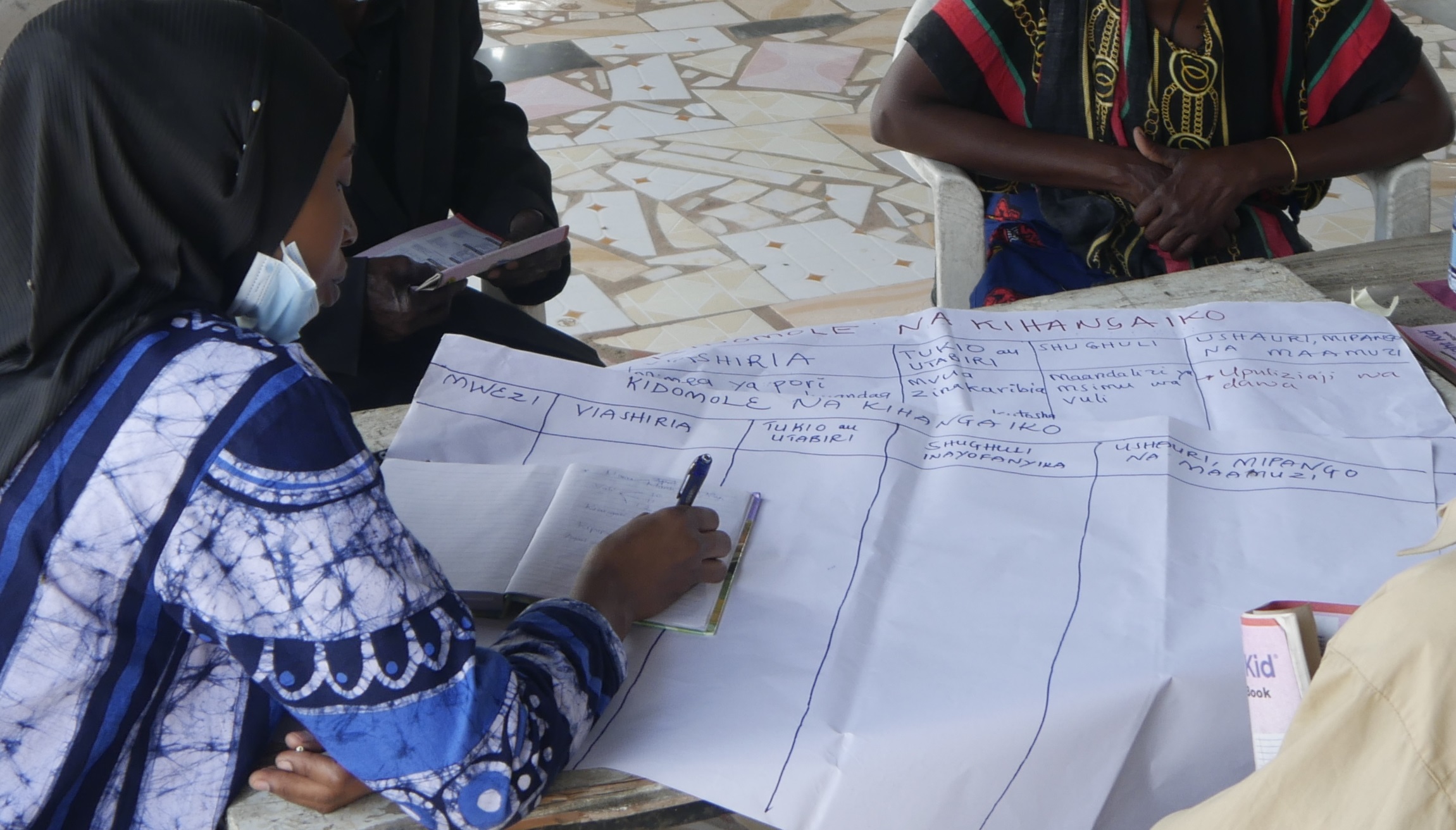
Aligning Climate Resilience, Sustainable Development and Poverty Reduction in Tanzania (Phase II)
Tanzania envisions becoming a middle income country by 2025. In order to realise this ambitious vision it is elementary that Tanzania develops on a sustainable pathway addressing issues such as poverty reduction and building climate resilience. The impact of climate change causing loss and damage in Tanzania is the major threat for a sustainable development of Tanzania. Therefore it is key for Tanzania to mitigate emission and adaptate to climate change in order to reduce the vulnerability of communities and the economy. This project foucs in consquence on strenghening and empowering up-scaling of Renewable Energies (RE) and Climate Services (CS) in Tanzania.
On Renewable Energy:
The role of RE in supporting climate resilient building and realising National Determined Contributions (NDCs), as part of the Paris Agreement, cannot be over emphasized. Despite the fact that, Tanzania has abundant and high-quality RE resources which are well distributed within the country, they are largely unexploited. Still, the energy sector portfolio in Tanzania has remained predominated by traditional biomass and imported expensive fossil fuels. This situation largely leads to deforestation and limits opportunity for socio-economic development and is an additional burden to the country’s economy due to price fluctuations creating an endless vicious cycle of poverty for communities.
Therefore CAN TZ aims to increase advocacy and consultancy on RE in Tanzania, in order to mainstream up-scaling of RE into national energy planning and policies. CAN TZ and civil society organisations will play a critical role in coordinating efforts towards inclusive and participatory development of important national energy strategies. CAN TZ will continue its advocacy on renewable energy to build stakeholders’ capacity while stimulating informed discussion and dialogues at national level through coalitions and technical meetings and dialogues with respective stakeholders.
At the center of the efforts to empower the up-scaling of RE is the formation of a National Coalition (NC) for RE, initiated by CAN TZ. The NC is a coordinated multi-stakeholder forum enabling discussion, engagement that advocates for integration of RE in the national planning and budgeting frameworks.
Learn more on the topic in the CAN TZ Hub on Renewable Energies (RE)
On Climate Services:
In Tanzania, smallholders (farmers, pastoralists, and fishers) employ largest population proportion (about 80%) and contributes about 70% of the total food requirements However, their efforts to achieve better living remain challenged and continue to account for a large proportion of the poor whose livelihoods are vulnerable to impacts of climate change hence reducing their resilience and sustainability. Climate Services (CS) can reduce the vulnerability by providing reliable, timely and useable climate information, that enable smallholder smart decision-making to adapt their livelihood activities (e.g. farming and fishery) to weather and climate phenomena.
In order to increase the dissemination of useable CS in Tanzania CAN TZ is engaged in the implementation of the National Framework for Climate Services. At the center of the efforts to support the implementation of the NFCS is the formation of a National Coalition (NC) for CS, initiated by CAN TZ. Beyond that CAN TZ is establishing the foundation of CS in projects districts Chalinze, Lushoto, Pangani and Bagamoyo. In cooperation with the Tanzanian Meteorology Authority (TMA) CAN TZ conducts Training of Trainers (ToT) , who are training endusers in the use of CS in decision-making for adaptation. The ToTs are trained using the participatory integrated climate services for agriculture and fisheries (PICSAF) approach. Trained end users receive climate information over a SMS system.
A major challenge for usable CS is currently that climate information is not yet available sufficiently downscaled for smallholders. The locally weather and rain patterns, experienced by smallholder, can vary largely from the weather forecast on district level. To downscale climate information the use and integration of indigenous knowledge (IK) into science-based forecasts can be beneficial. Weather forecasting based on local indigenous knowledge orignates from a long tradition of local communities in nature observation and reading indicators such as plant flowering to predict upcoming weather events. In scope of the project CAN TZ work with local indigenous forecasters to gain experience in tailoring and disseminating integrated forecasts. These activities form the advocacy and consulting work on implementation of the NFCS. CAN TZ is working together with the national coalition on CS to mainstream IK-based integrated forecasts into the implementation of the NFCS.
Learn more on the topic in the CAN TZ Hub on Climate Services (CS)
